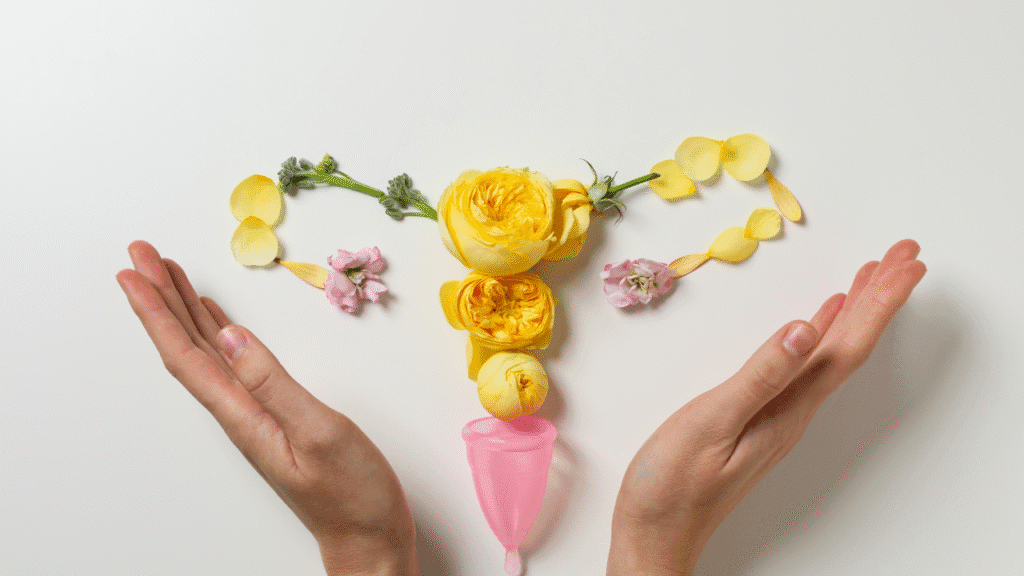Explore modern solutions for women’s pelvic health, from pelvic floor therapy, hormone support, laser treatments, and lifestyle strategies.
Empowering Women Through Modern Pelvic Health Solutions
For generations, women have been told that bladder leaks, pain, or discomfort are just part of aging or motherhood. Unfortunately, while these symptoms are common, they are not normal and should be addressed. Today, more women are speaking up, learning about their bodies, and seeking help through evidence-based therapies that restore comfort and function.

At Grace & Gratitude Wellness, we believe women’s pelvic health deserves open discussion and advanced care. From pelvic floor therapy to hormone balance, laser treatments, and microbiome support, modern solutions are helping women feel strong and confident again.
Why Women’s Pelvic Health Matters
Your pelvic floor muscles, connective tissue, and hormones all work together to support your bladder, uterus, and rectum. When this system becomes imbalanced—whether from childbirth, surgery, menopause, chronic tension, or even high-impact exercise—it can affect every aspect of daily life.
Issues like urinary incontinence, pelvic organ prolapse, constipation, or painful intercourse can take a toll physically and emotionally, often leading to frustration, embarrassment, or a loss of confidence. Many women avoid activities they love or struggle in silence, thinking their symptoms are something they just have to live with.
The truth is, these challenges are common but never normal. With modern therapies, education, and compassionate care, women’s pelvic health can be restored naturally and effectively—helping women feel strong, confident, and in control of their bodies again.
Pelvic Floor Therapy: The First Line of Care

One of the most effective tools for improving women’s pelvic health is pelvic floor therapy. This specialized therapy helps retrain and strengthen the muscles that support the pelvis. A trained pelvic health physical therapist can assess muscle tone, release tight areas, and teach targeted exercises to restore balance and coordination.
Therapy may include breathing techniques, posture training, biofeedback, or the use of tools like dilators and wands. These approaches not only relieve symptoms but also address the root causes of dysfunction, helping women regain confidence and improve their overall quality of life.
Hormone Support and Vaginal Rejuvenation
Hormonal shifts during perimenopause and menopause play a major role in women’s pelvic health. Lower estrogen levels can lead to dryness, atrophic vaginitis, and weakened pelvic tissue.
Treatment options include:
- Topical estrogen therapy, which helps rebuild vaginal tissue and improve lubrication
- Non-hormonal moisturizers and hyaluronic acid ovules, for those who prefer or require alternatives
- Laser and energy-based therapies, such as the Diva or MonaLisa, which use gentle energy to stimulate collagen, restore elasticity, and relieve symptoms of atrophy

These innovations provide long-term comfort for women who might not be candidates for hormone therapy or who want complementary support.
The Role of the Vaginal Microbiome
A healthy vaginal microbiome is key to women’s pelvic health. This ecosystem of bacteria—especially Lactobacillus—helps maintain an acidic pH and protects against infections. When this balance is disrupted, women may experience irritation, infections, or odor.

Supporting the microbiome through probiotics, pH-balanced cleansers, and avoiding harsh soaps helps maintain comfort and reduce recurring issues. Probiotics containing strains such as Lactobacillus rhamnosus and Lactobacillus reuteri can restore healthy bacteria, either through supplements or vaginal suppositories recommended by your provider. Likewise, using a gentle, pH-balanced cleanser designed for intimate care helps preserve natural acidity while keeping the skin clean and hydrated—unlike regular soaps, which can strip protective oils and disrupt the microbiome.
In some cases, restoring hormonal balance also improves microbial health, since estrogen supports the growth of beneficial bacteria.
At Grace & Gratitude Wellness, we frequently combine microbiome testing with pelvic floor assessments to provide a truly personalized approach.
Lifestyle and Self-Care for Pelvic Health

Modern solutions for women’s pelvic health go beyond the clinic. Daily habits play a crucial role in prevention and recovery. Small changes can make a big difference:
- Stay active: Movement improves circulation and keeps muscles strong.
- Practice mindful posture: Avoid straining during bowel movements and heavy lifting.
- Hydrate: Adequate water intake helps bladder health.
- Engage the pelvic floor: Gentle exercises, guided by a therapist, improve strength and coordination.
- Avoid overdoing Kegels: Too many can create tension if muscles are already tight.
Lifestyle changes paired with professional therapy help women take ownership of their healing and maintain results for years to come.
Where Science Meets Compassionate Care
At Grace & Gratitude Wellness, we’re proud to partner with Prime Therapy to bring advanced, compassionate care to our community. Our approach blends modern science with a personalized touch—empowering women to understand their bodies and take control of their health.
Whether you’re postpartum, in perimenopause, or navigating the transitions of midlife, there’s no reason to live with pain or embarrassment. Today’s therapies are effective, accessible, and designed to help you thrive.
Your Next Step Toward Pelvic Health Confidence
Your pelvic health is an essential part of your overall well-being. You don’t have to live with discomfort, and you don’t have to face it alone.
📍 Visit us in Devils Lake, ND, or explore our services at Grace & Gratitude Wellness.
📞 Call us at (701) 662-2039 to schedule your first session.
At Grace & Gratitude Wellness, we’re here to help you reconnect with your body, restore balance, and rediscover confidence through modern women’s pelvic health solutions.



